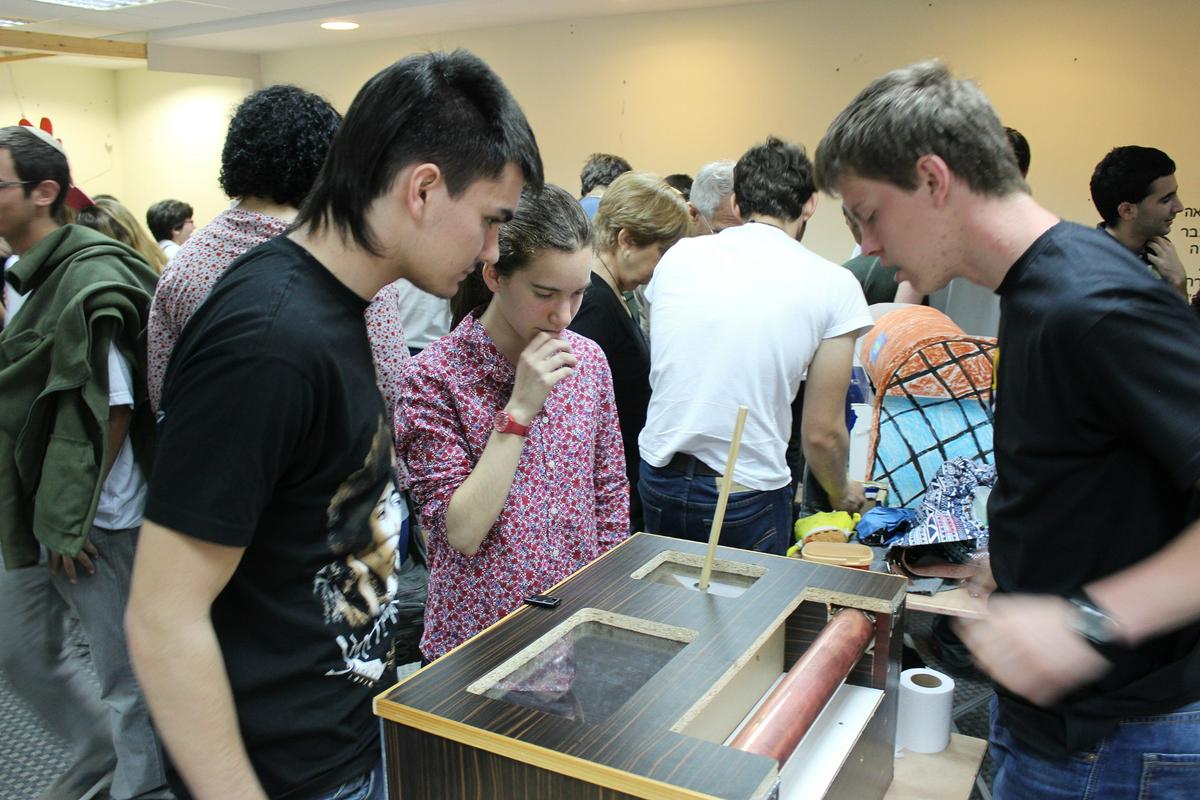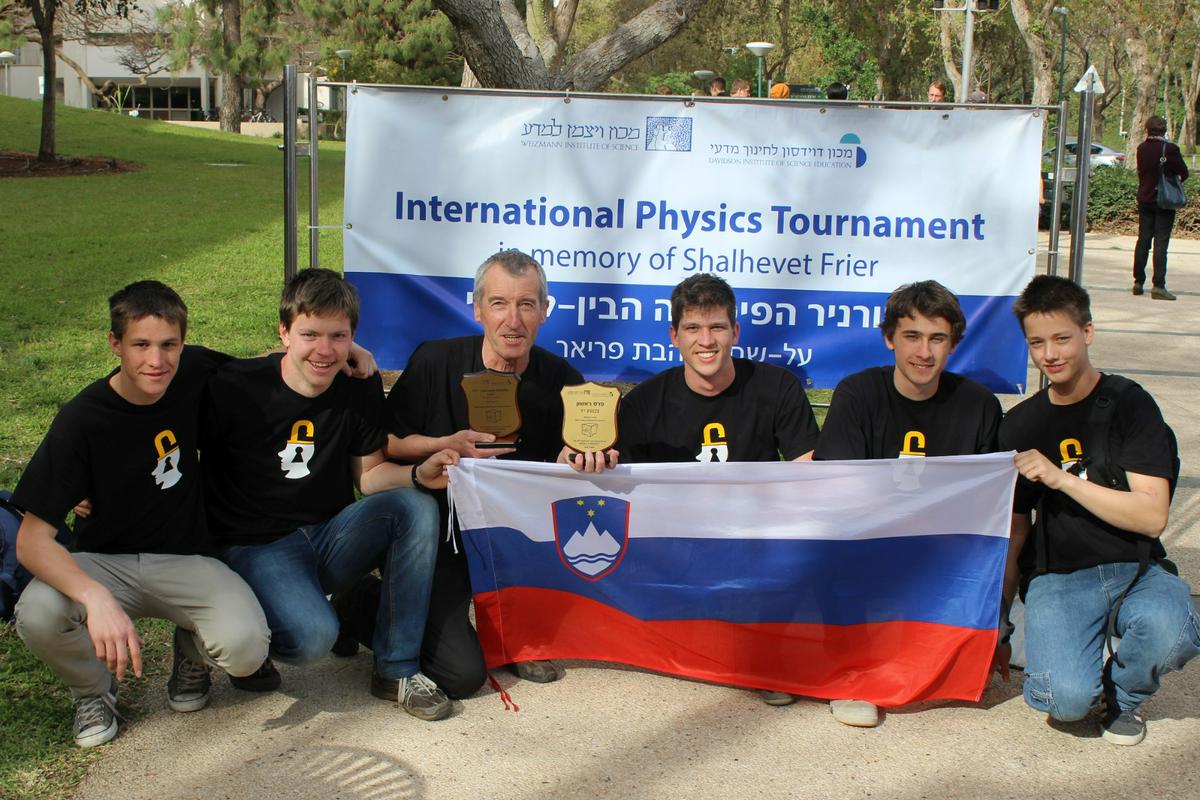
72 teams took part in the International Safe Cracking Tournament at the Weizmann Institute in Rehovot, Israel. Most of the teams came from the host nation Israel. Also represented at the tournament were Austria, Canada, Romania, Slovenia, Spain, Switzerland, Great Britain and the U.S.
The team of masters in physics from the Želimlje high school was made up of Jan Adamič, Šimen Hosta, Izidor Simončič, Janez Goršin and Miha Nagode. Under the mentorship of professor Peter Šlajpah, the team first swept away all competition at the national tournament in order to qualify for the international tournament in Israel.
The students named their safe »Vodomat«. There are two physics riddles in the safe, and water is the key to solving both of them. In the first stage you have to pump out the water, and in the second stage you have to direct a laser beam with the help of a glass prism.
Those who tried to crack the safe received detailed instructions of what they had to do. Teams were assessed on their safe-cracking abilities, on their safe's protection system and on their theoretical defence.
The rules are that the team that opens a safe wins points. If it is unable to crack a safe the points then go to the team that built the safe. At the same time the team that fails to crack a safe has to assess how »friendly« the safe is to those trying to crack it. The students from Želimlje won the most points in that category. "At the end when we opened the safe they all said: Wow, so that's how it works! The trick has to be obvious, clear and clean. We strove to make it the right amount annoying, but still friendly," explained Mr. Šlajpah.
And what kinds of skills are needed to take part in such a tournament? "Basically, you have to have a good knowledge of physics and know many of the principles of physics. It's not only about defending your system in theory and building a safe, but also about cracking the riddles of the other safes. Then, you also have to use a saw from time to time, and that's where we run into problems as our schools aren't well equipped with such tools. So we've adapted our physics classroom into a workshop, and bring in the tools from home, " says the professor Šlajpah.
Gorazd Kosmač, MMC;
translated by K. J.


































































